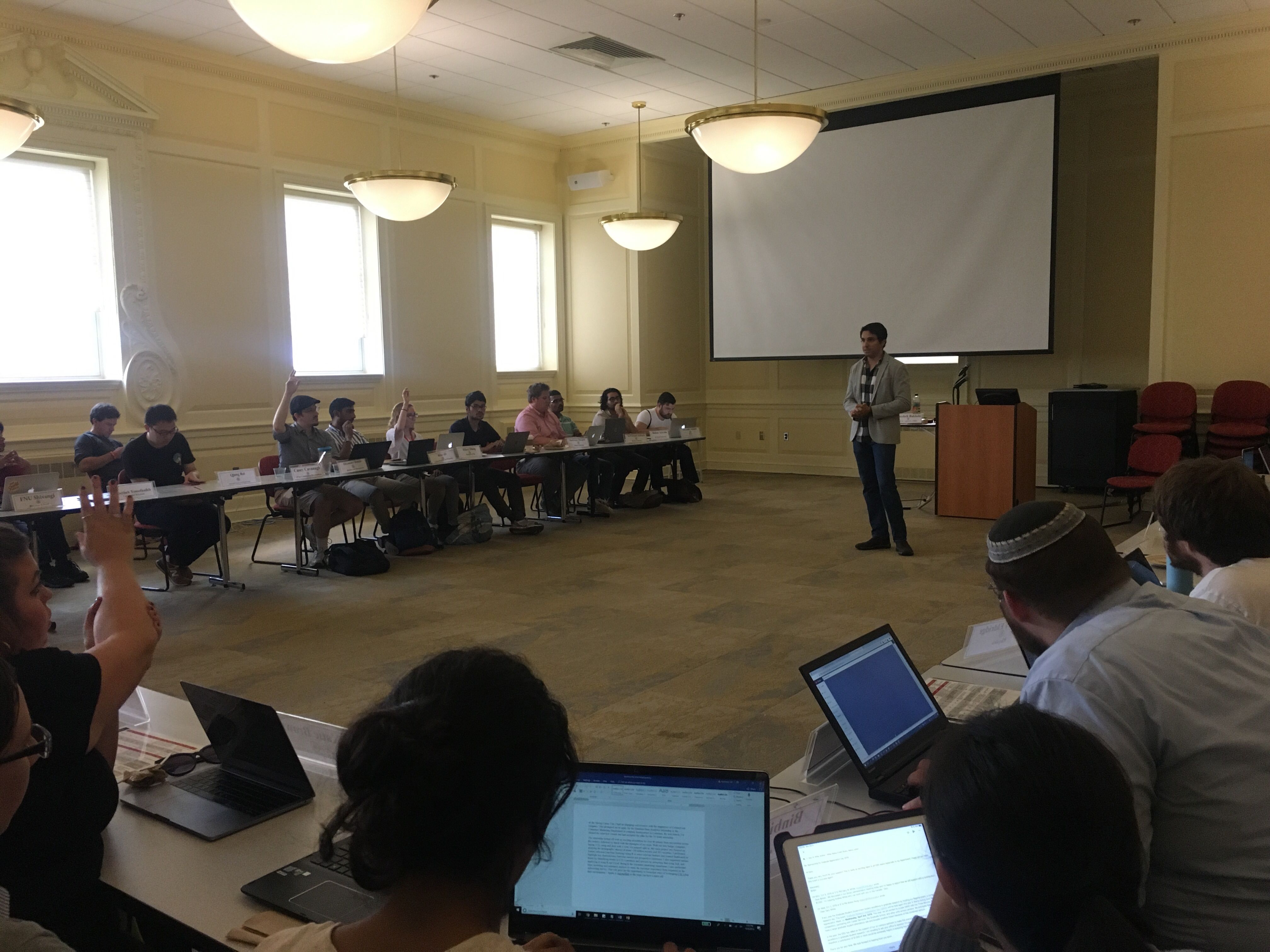After a nearly 50-minute debate, the University of Maryland’s GSG rejected a bill Monday that would have upped the executive board’s honoraria by more than $600, but did set a higher standard for its minimum executive board pay.
Each student on the eight-member board is currently paid $1,334 per semester. The bill would have bumped that to $1,950 — based on a $15 per hour wage pushed for in many labor movements — by transferring $8,506 from the “discretionary funds” category of the budget to the portion set aside for compensating staff.
Representatives voted down the measure 17-15, with five abstentions.
[Read more: After “quite a bit of cold calling,” UMD’s GSG sees a spike in membership]
Alex Dennis, a business school representative, took issue with the fact that the bill was proposed and sponsored by people who would have benefitted from its passage. Legislative affairs vice president Roozbeh Bakhshi proposed it, and it was sponsored by another executive — Devin Scott, the financial affairs vice president.
Dennis, a business doctoral student, said he didn’t think executives should propose raising their pay immediately, but should propose changing it for the next fiscal year’s budget. He compared the matter to the 27th Amendment to the U.S. Constitution, which stipulates that pay increases for federal senators and representatives can’t go into effect until after the subsequent congressional election.
“To me, this is independent from any assumption of ill will or anything like that,” Dennis said. “It’s more of a fundamental question, and I personally believe this should not be the case.”
[Read more: UMD GSG elects public relations and government affairs vice presidents]
Dennis said this university’s GSG also pays its executives more than what other Big Ten graduate student governments do. For instance, Penn State University does not pay its executives an honoraria, he said. And according to the 2016-17 budget from Indiana University’s Graduate and Professional Student Government, their executives received a $500 fellowship per semester.
Bakhshi said that it didn’t make sense to make this comparison, since members don’t know how the duties of executives at other schools differ from those held by this university’s GSG executives.
Zachary Eldredge, physics department representative, voiced his support for the bill. He said the pay raise would contribute to the group’s work in graduate student labor issue advocacy.
“One of the things we need to do if we want to build a culture that really values graduate students is paying people for the labor they do at fair rates,” the doctoral student said.
Though the organization didn’t take up the $616 pay spike, they did vote to increase the minimum honoraria for executive board members. Starting in the next fiscal year — which begins in July 2019 — the minimum wage will go up to $11.50 per hour, to be in line with the minimum hourly wage in Prince George’s County. This would raise their pay to $1,495 per semester from the organization’s budget.
Chemistry representative Laura McBride voted against the bill for a $15 per hour wage, but she was one of the 28 representatives who supported this second measure.
McBride said her constituents “wouldn’t be happy” if their student fees were used to pay executives more than what the minimum wage requires.
“I think that raising the minimum wage to what it actually is [in Prince George’s County] is fair,” she said.
GSG members also had the opportunity to ask Robert Caret, the University System of Maryland’s chancellor, about graduate student concerns, including the effectiveness of shared governance between this university’s student groups and its administration.
Last semester, the USM Student Council — which is made up of student delegates from across the system — found in a survey, which garnered input from undergraduate and graduate student leaders from the system’s 13 institutions, that there was “much room for improvement” for this process on the campus. Caret said he read the results of the survey.
For this university’s section, the survey highlighted the implementation of a fee on international students as an example of failed shared governance. The fee — $125 for full-time international students and $62.50 for part-time ones — bypassed the standard approval process, which would have included recommendations from a review committee composed of university officials and students.
“It really behooves [institution presidents] to work with their constituents to keep the campus running in a healthy way and that means listening to everybody,” he said. “And not necessarily getting what everybody wants, but at least getting people to a point where they feel like you listened, you’ve taken their advice seriously and you’ve justified your decision.”
CORRECTION: Due to an editing error, a previous version of this story implied that GSG executives would vote on the measure. The executives are not voting members of the body, and merely proposed the bill. This article has been updated.



